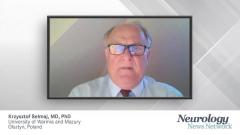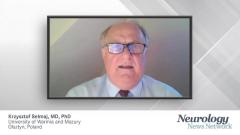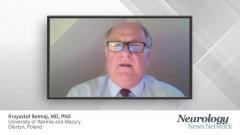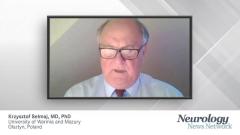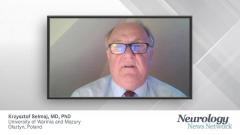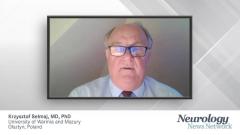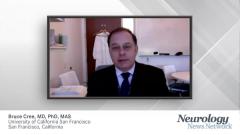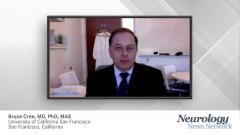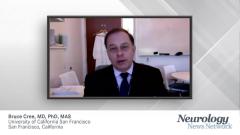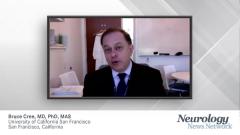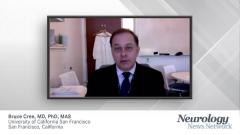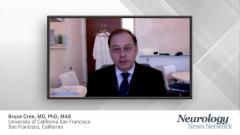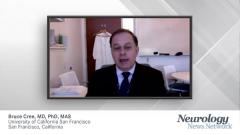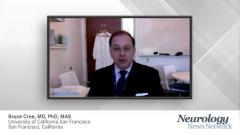
Expert Advice on Multiple Sclerosis Treatment Cessation and Disease Rebound
Bruce Cree, MD, PhD, MAS, provides his clinical advice on managing treatment cessation of sphinogine-1-phospate (S1P) receptor modulators while preventing multiple sclerosis (MS) disease rebound.
Episodes in this series

Transcript
Bruce Cree, MD, PhD, MAS: One of the important questions that patients want to know about S1P [sphingosine-1-phosphate] receptor modulators is, what happens if I discontinue treatment? There were a number of case reports associated with fingolimod that suggested that disease activity could rebound following discontinuation of fingolimod, and some patients who stopped fingolimod and did not go on other disease-modifying therapies experienced severe relapses and had quite aggressive disease activity, as documented by a brain MRI [showing] lesion formation. So there is a concern that stopping these types of medications can result in rebound, and you can see this in the prescribing information for each of these products. However, to date, the only product which has been clearly associated with rebound is fingolimod. We do not see that with ozanimod, or siponimod, or ponesimod, at least not yet. The data there is actually quite good and quite robust, and exactly why these next-generation products seem to be not associated with the rebound in disease activity, whereas fingolimod is not clear to me, at least at the biological level. One of the things that has been associated with these drugs is an attenuation in response to COVID-19 vaccination. We do see this across the board with all of these products, as well as [with] the anti-CD20 monoclonal antibodies. So one concern that patients have, of course, is they don’t want to get COVID-19, they want to be fully vaccinated for COVID-19, and this has led to the consideration of treatment interruption with this class of agents. So if one interrupts treatment, what does one do if there is a threat of recurrence of disease activity? There are a number of potential solutions for that, as one is waiting for immune reconstitution. The good news is immune reconstitution with these products typically does not take very long. Their biological half-life is relatively short, their impact on suppression of lymphocyte counts in the peripheral blood is also relatively short, and we can see these values return, at which point vaccination is reasonable. So one doesn’t necessarily have to use other products in the interim if one has taken a patient off of an S1P receptor for a short period of time. However, if one is planning to discontinue one of these treatments, I would strongly recommend that another disease-modifying therapy be used if your [MS patients are relapsing] immediately after discontinuation. So it’s a balance, of course, and it’s a matter of good clinical judgment in this regard, but generally speaking, it is common in my personal practice to not simply take patients off the disease-modifying therapy without restarting another one. It’s very important to think about what your exit strategy is going to be and what the next disease-modifying therapy [is that] you’re going to select for your patient as the next treatment.
Transcript edited for clarity.
Newsletter
Keep your finger on the pulse of neurology—subscribe to NeurologyLive for expert interviews, new data, and breakthrough treatment updates.


